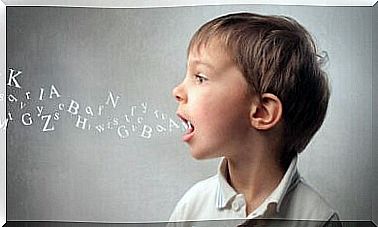The Importance Of Teaching Children To Say “thank You “, “please ” And “good Morning “
Teaching children the importance of always saying thank you, asking please or saying good morning or good evening goes beyond mere courtesy. We will invest in emotions, social values and, above all, reciprocity.
To create a society based on mutual respect, in which being civil and consideration make the difference, it is necessary to invest in these small social habits to which, at times, we do not pay the importance they deserve. Because coexistence is based on harmony, on quality interactions based on tolerance, to which every child should give importance from an early age.
A mistake many families make is to teach their children these rules of courtesy only when they start talking. Well, it is interesting to know that a child’s “social brain” is tremendously receptive to any stimulus, tone of voice and even facial expressions of their parents.
Believe it or not, we can educate a child in certain values from a very young age. His attitudes are almost unsuspected and it is necessary to take advantage of that great sensitivity in emotional matters. We tell you about it below.
Give thanks, a powerful weapon for the infant brain
Neuroscientists remind us that a child’s neuronal system is genetically programmed to “connect” with others. It is a wonderful and intense thing. Even daily activities, such as feeding him, washing him or dressing him, turn into brainprints that shape, in one way or another, the emotional responses that the child will give in the future.
The design of our brains, so to speak, makes us feel inexorably attracted to other brains in turn, due to the interaction of all those around us. A child treated with respect and who from an early age is accustomed to hearing the word “thank you”, therefore, will quickly understand that it is a powerful positive reinforcement and, little by little, will develop it in turn.
It is very likely that a 3-year-old child, to whom his parents have taught to say “thank you”, “please” and “good morning”, still does not understand the value of reciprocity and respect for these words. Nevertheless, all this creates an adequate and wonderful substrate, so that the roots are strong and deep.
The magical age between 2 and 7 years is what Piaget called the “stage of intuitive intelligence”. It is in this phase that the little ones, despite not understanding the world of adults, gradually awaken their sense of respect, sense that universe that goes beyond their own needs, to discover empathy, the sense of justice and, of course, reciprocity.
Reciprocity: an important social value
When a child finds out what happens in his closest context when he asks for things “please” and ends with a “thank you”, nothing is the same anymore. Until then, he meant these words as adult-set norms, which gave positive reinforcement to his good behavior.
Nevertheless, sooner or later, the child will feel the genuine affection of treating his fellow men with respect and the results that this action has on himself and on others. It is an exceptional thing, a conduct that will accompany him forever, because treating others with respect also means respecting oneself, acting in accordance with values and a sense of coexistence based on an important social and emotional pillar: reciprocity.
It will be around 7 years of age that our children will fully discover all the values that shape their social intelligence. At this moment they begin to give more importance to friendship, to know what this emotional responsibility implies, to understand and enjoy collaboration, to meet the needs of others and interests other than their own.
It is undoubtedly a wonderful age, during which any adult must take into account one essential aspect: we must continue to be the best example for our children. Well, the magic question is the following … How can we instill in our children, from an early age, these rules of coexistence, respect and courtesy?
Here are some strategies for you to take into account: these are basic guidelines to offer to children in every situation. These are worth keeping in mind:
- Have you entered anywhere? Say hello, say good morning or good evening.
- Go away? Say goodbye.
- Did they do you a favor or give you something? Say thank you
- Do they speak to you? Answers.
- Are they talking to you? Listen.
- You have something? Share it.
- You do not have it? Don’t envy him.
- Did you take something that isn’t yours? Return it.
- Do you want them to do something for you? Please ask.
- You are wrong? Apologize.
These are simple rules that will undoubtedly be of great help to your children day in and day out.









